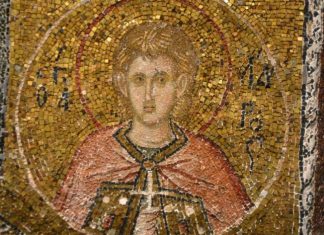It is surprising that, despite large areas of unused land, the fields around Athens do not produce enough vegetables to meet local demand. The reason is not entirely clear, but many people attribute it to the habits of the population, suggesting that Greeks are not naturally skilled gardeners.
The King’s Example
King George has set an important example in agriculture. He owns an estate and country house about fifteen miles from Athens, including several thousand acres of land under careful cultivation. His farm acts as an experimental and demonstration project. It not only shows what can be done but also teaches proper farming methods and the benefits of intelligent cultivation Shops and Commerce in Athens.
The king maintains the best livestock in Greece, using improved machinery and raising high-quality breeds of cattle, horses, sheep, swine, and poultry. He sells milk, vegetables, and other farm products in the local market, similar to how Queen Victoria sold produce on her Isle of Wight estate. This model farm demonstrates that modern methods can significantly improve productivity and quality.
Influence on Greek Farmers
The king’s efforts have made farming more respectable, but few wealthy Greeks have followed his example and entered vegetable cultivation or commercial gardening. Nevertheless, he has contributed in other ways. He provides seeds to any farmers who request them, helping to improve crop production. He has also worked to improve the breeds of livestock and poultry, although horses and cattle in Greece remain relatively poor. Sheep, however, are much better and show significant improvement.
Dairy Farming in Greece
Dairy farming is limited, and more goat’s milk is produced and consumed than cow’s milk. Greeks use relatively little butter, and the local butter must be consumed quickly because it has a coarse texture and does not keep well. It resembles “smear-kase” and tastes more like whipped cream than traditional butter. Cow’s milk is scarce and expensive outside large cities, so nearly all rural Greeks rely on goat’s milk for drinking and cooking Private Balkan Trip.
Challenges and Opportunities
Although the king has shown that intelligent farming can succeed, most Greeks have not yet adopted modern methods widely. Vegetable production remains low, and dairy farming is underdeveloped. With education, improved tools, and better livestock, Greece could increase local production, reduce dependence on imports, and make agriculture a more profitable and respected occupation. The king’s example provides a model, demonstrating that with knowledge and care, Greek farms can thrive.








